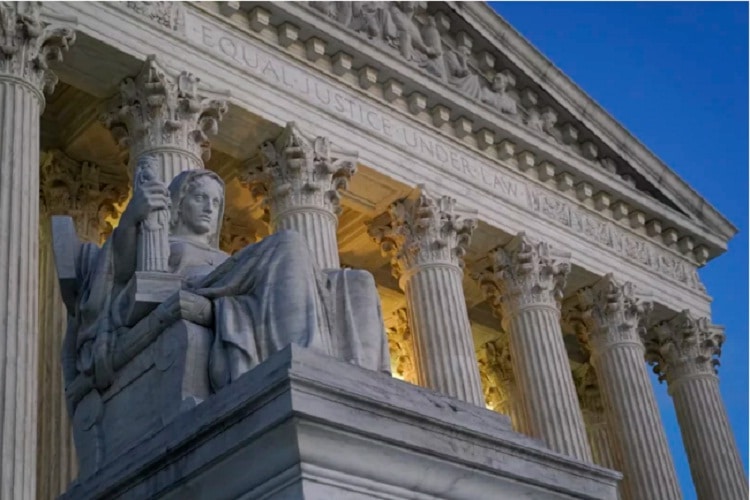
The Supreme Court on Monday agreed to hear a challenge to the Indian Child Welfare Act of 1978, which gives Native American tribes a preference in adopting Native American children. The case, Brackeen v. Haaland, was brought by a Texas couple who were denied the right to adopt a Native American child.
The Indian Child Welfare Act was passed in response to a history of Native American children being removed from their homes and placed in foster care or adoptive homes with non-Native families. The law gives tribes a preference in adopting Native American children, and requires state courts to consult with tribes before making decisions about the placement of Native American children.
The Texas couple in the Supreme Court case, Jennifer and Chad Brackeen, were denied the right to adopt a 3-year-old boy who had been placed in foster care. The boy’s mother is Navajo and his father is Cherokee. The Brackeens are both white.
The Brackeens argued that the Indian Child Welfare Act is unconstitutional because it discriminates on the basis of race. They also argued that the law is unnecessary because there is no evidence that Native American children are being removed from their homes at a higher rate than other children.
The Supreme Court’s decision to hear the case is a significant development in the debate over the Indian Child Welfare Act. The case could have a major impact on the law, and could affect the way that Native American children are adopted in the future.
Here are some additional details about the Indian Child Welfare Act:
- The law was passed in 1978.
- It gives Native American tribes a preference in adopting Native American children.
- It requires state courts to consult with tribes before making decisions about the placement of Native American children.
- The law has been credited with reducing the number of Native American children being removed from their homes.
- The law has also been criticized for discriminating on the basis of race.
The Supreme Court’s decision in the Brackeen case is expected to be issued in 2024.



